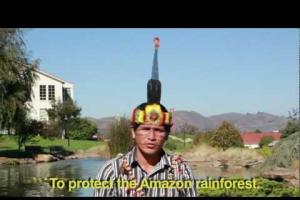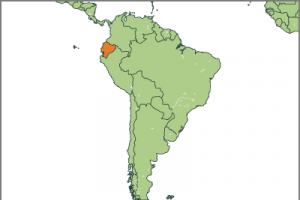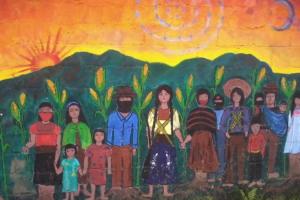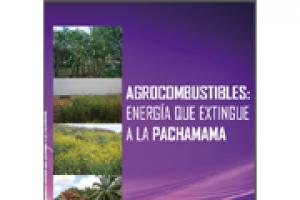Against oil extraction in the Amazon forest in southern Ecuador:
Ecuador
Other information
30 August 2012
The Inter-American Court of Human Rights (IACHR) has ruled in favour of the Sarayaku indigenous people of the Ecuadorian Amazon in the case of Sarayaku v. Ecuador. The ruling, made public on July 25, ends a decade-long legal battle waged by the Sarayaku after a foreign oil company was allowed to encroach on their traditional lands in the early 2000s without their consultation.
Bulletin articles
29 January 2012
To commemorate the 15th anniversary of the Instituto de Estudios Ecologistas del Tercer Mundo (Third World Institute for Ecological Studies) and to pay tribute to Ricardo Carrere (who was the WRM coordinator up until December 2010), the Ricardo Carrere Conference on Ecological Thinking was held in Quito, Ecuador. (*).
Other information
29 September 2011
Only available in Spanish -
Por Elizabeth Bravo y Nathalia Bonilla. Las nuevas políticas de agrocombustibles en el Ecuador - Setiembre 2011
Download as pdf
Other information
31 October 2010
The ITT oil exploration block, located within the borders of Ecuador’s Yasuní National Park, is an area of extraordinary biological diversity. The Ecuadorian proposal to leave the estimated 850 million barrels of oil reserves in this block untouched, in perpetuity (see WRM Bulletin Nº 157), marked a change of course in the right direction towards biodiversity conservation.
Bulletin articles
30 August 2010
On 3 August the Ecuadorian Government and the United Nations Development Programme signed the Ishipingo-Tambococha-Tiputini (ITT) Trust Fund agreement. The signing of this financial instrument is the first concrete step towards implementing the project launched 3 years ago which set out to keep 846 million barrels of crude oil under the ground in the Yasuni national park – one of the planet’s most bio-diverse places and home to the Waorani indigenous people and of indigenous groups living in voluntary isolation.
Bulletin articles
29 July 2010
Corría el año 1998 cuando los Pueblos Ancestrales del Ecosistema Manglar del Ecuador decidieron unir sus esfuerzos en una gran campaña denominada “¿Y si se Acaba el Manglar?” en la isla de Muisne, ubicada en la provincia de Esmeraldas en la costa norte del Ecuador, donde más del 85% de sus manglares se convirtieron en menos de 30 años en piscinas para la cría en cautiverio de camarón.
Bulletin articles
29 April 2010
El Pambilar with its 3123 hectares of native forest, has since 1997 been a matter of dispute between peasant farmers and the logging company Bosques Tropicales S.A (Botrosa), belonging to the Peña Durini group.
Other information
30 March 2010
This story has been cultivated with the thoughts, the experience, the dreams, the words and the hands of women shell-gatherers from the Province of Esmeraldas, in northern Ecuador.
Bulletin articles
30 September 2009
The experience of Ecuador in areas where large-scale pine plantations have expanded shows that, far from providing women with opportunities, women have been adversely affected by them in various ways.
Bulletin articles
30 August 2009
The inclusion of forests on the carbon market in its REDD (Reducing Emissions from Deforestation and Forest Degradation in Developing Countries) format was adopted by the United Nations System through the UN-REDD Programme. In 2008, the UN Secretary General presented the UN-REDD Programme, implemented by three UN agencies: FAO, UNEP and UNDP, in close collaboration with the World Bank.




